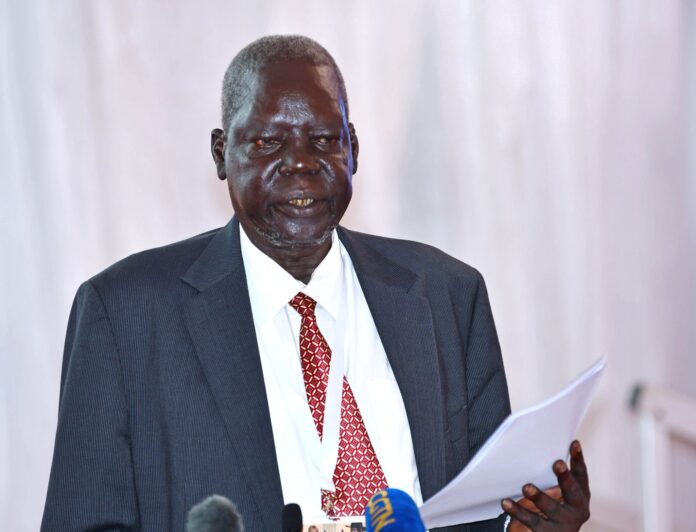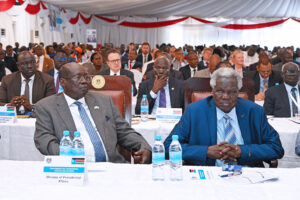
South Sudan is conducting a 3-day transitional Justice system Conference to discuss the principles for transitional Justice in the Country.
The conference started on Monday 15th and will end on Wednesday, the 17th 2023 under the theme: “Building sustainable South Sudan model for the transition Justice.
It was inaugurated by President Salva Kiir and his deputy First Vice President Riak Machar, and other government dignitaries, members of the Diplomatic core, and civil Society participated.
The occasion focuses on the formation of transitional Justice mechanisms as provided under Chapter 5 of the Revitalize Agreement on Resolution of Conflict in South Sudan (R-ARCSS).
Chapter 5 of the R-ARCSS major on Transitional Justice, Accountability, Reconciliation, and Healing clearly defines the mandates and jurisdiction of the three institutions.
The conference is expected to pave the way for the formation of Transitional Justice Mechanisms such as the Truth, Reconciliation, and Healing Commission, the Compensation and Reparation Authority, and the Hybrid Court for South Sudan.

The Minister of Justice and Constitutional Affairs Justice Ruben Madol Arol said the conference will enrich the drafted bills for the establishment of the institutions
Ruben Madol pointed out that Chapter 5 of the Agreement charged the Ministry of Justice and Constitutional Affairs in Collaboration with other stakeholders to conduct a public consultation to see the views of South Sudanese
According to him, the technical committee which was launched by the government on 29th of March 2022 consulted 4,543 people of which 3,008 were males and 1,535 were females.
He says the team also conducted 86 group discussions, 78 community meetings, dialogues, and briefings, and collected 201 self-administered questionnaires
Justice Madol explained that 18 Radio talk shows were held and 12 Television Interviews were conducted by different media outlets across the country.
Madol believes the establishment of the Commission on Truth, Reconciliation, and Healing will reflect the needs, expectations, and aspirations of the people of South Sudan
Minister Madol stated that the only way to legitimacy and credibility of Justice system mechanisms in the country is through the consultation processes.
“Consulting the people of South Sudan is not only a legal requirement but also an essential national and political exercise that is necessary to fulfill its objective and contribute to Reconciliation, Healing, and lasting peace in South Sudan,” Arol explained.
According to Justice Ruben, he had received two drafted bills from the task force of the Ministry of Justice for the establishment of the two main transitional justice institutions.
The CTRH and CRA will be shared by experts to provide their guidance before the bills are sent to the national council of Ministers and the Transitional National Legislative Assembly for enactment into laws.
Minister Madut is confident that from this conference, the healing and reconciliation process for the people of South Sudan has started.
He calls on the State Governors, Chief Administrators, local officials, and community leaders to continue conducting public awareness to prepare the people for reconciliation as they wait for the two institutions to be formed.
“I want to take this opportunity to make a direct call on the State Governors, Chief Administrators, local officials, and community leaders to continue conducting public awareness to prepare the people for reconciliation as they wait for the establishment of the two institutions,” Justice Madut reiterated.

It is not yet clear why the government shows less interest in the establishment of an Independent Hybrid Court for South Sudan as stipulated in Chapter 5.3.1 of the Agreement.
They are the Commission for Truth, Reconciliation, and Healing (CTRH), An Independent Hybrid Judicial body known as the Hybrid Court for South Sudan (HCSS), and the Compensation and Reparation Authority (CRA).
Chapter 5.1.1 of the R-ARCSS states that upon the establishment of the Unity Government, it shall initiate legislation for the establishment of the 3 transitional Justice institutions.
